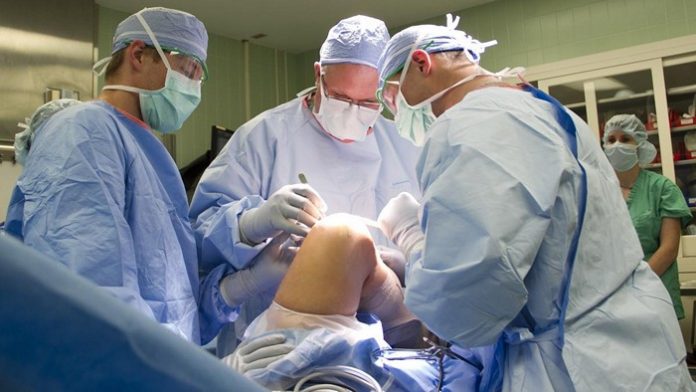People who experience persistent knee pain even after surgery may soon be able to benefit from a revolutionary device — the world’s first artificial meniscus. Every knee has two menisci — crescent-shaped discs of cartilage (soft tissue) that connects the thigh bone to the shinbone, and act as shock absorbers and stabilize the knee.
Last month surgeons in Israel successful performed a novel knee surgery using a new implant device that is being hailed as a ‘breakthrough’ in treating knee problems. The new implant made of polyurethane-carbonate, mimics the biomechanical function of the medial meniscus by protecting the cartilage from overload. It also prevents further degeneration of the cartilage that happens when part of the meniscus is removed after a tear, or in case of a nonfunctioning, degraded meniscus.
Called NUsurface Meniscus Implant, it could be used for people who would otherwise need a partial or total knee replacement. Right now, the only treatment for people who have a painful or degraded meniscus is to undergo pain medications, physiotherapy, and intra-articular injections (directly into the joint) to relieve pain. Following these measures, the person has to wait until the cartilage has deteriorated severely to the point where the knee needs to be replaced with an artificial implant made of metal and plastic.
The advantage of the new device is that it is reversible. It is inserted into the knee through a small 5 to 6 centimeter aperture and there is no need for any fixation with sutures, screws, glue, or other stuff. There is also no need to drill into or cut the bone. And, in case the implant does not fit the patient, which very rarely happens, it can be taken out and the knee is back to the same situation as before the implantation. People who have the surgery typically can go home soon after the operation.
The manufacturers of the device are optimistic about the effectiveness of the new implant. Biomechanical studies of the device show that the pressure distribution on the cartilage after implantation is the same as on a normal meniscus. So it will prevent or delay the need for total knee replacement. More than 2 million partial meniscectomies are reportedly performed worldwide annually in an attempt to alleviate knee pain.
















